Home
Knowledge hub
News & events
News
One-man parlour provides fixed cost-benefit
One-man parlour provides fixed cost-benefit
Installing a new MidiLine parlour has more than halved standing time, reduced mastitis cases, improved foot health and increased yield. It has also brought back a Welsh family’s love of milking by making the process enjoyable again and reducing costs to help cope with falling milk prices.
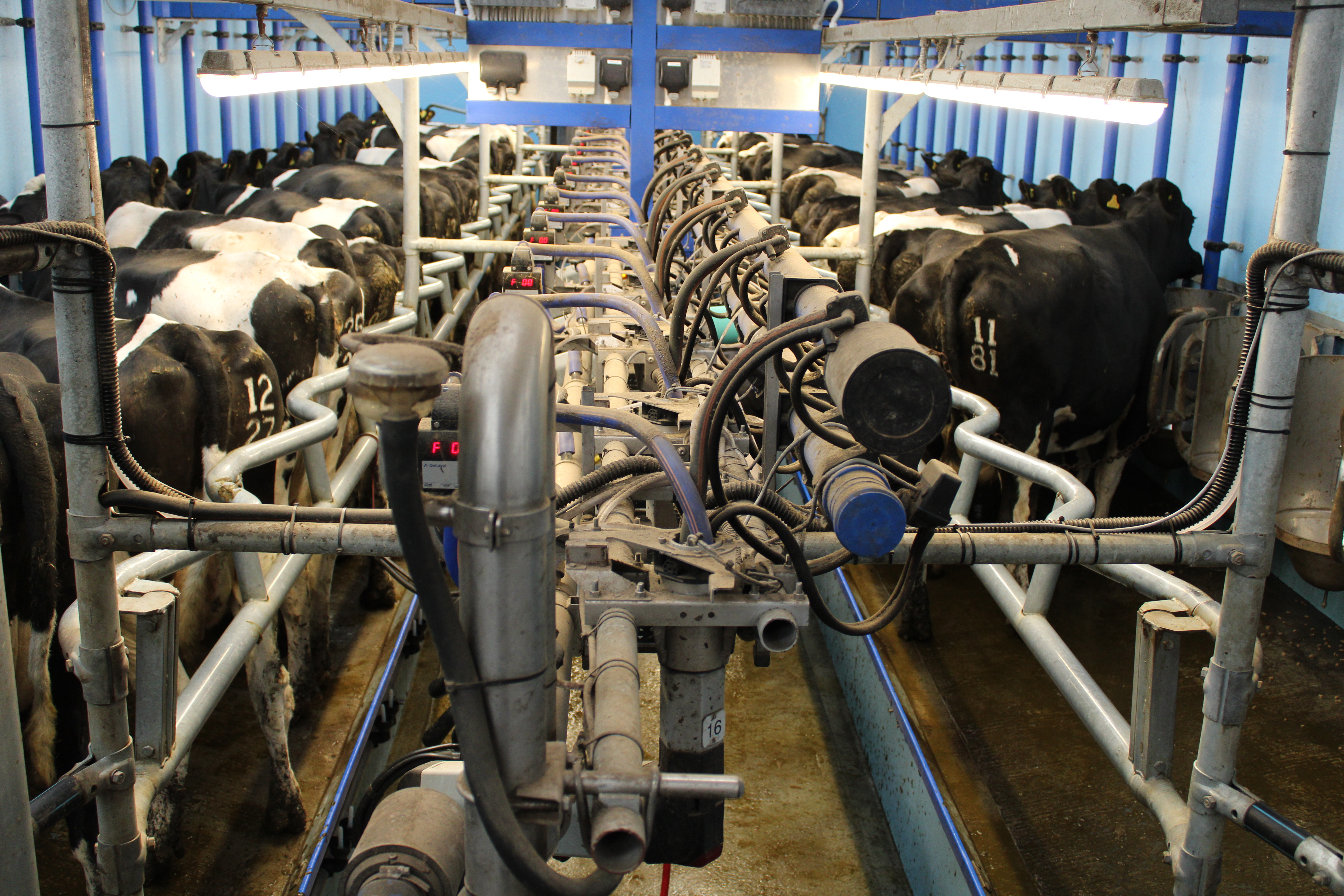
Iwan and Sian Jenkins farm in partnership and, along with their son Steffan, milk 150 Holstein-Friesian cows near Lampeter. Until the installation of their DeLaval ML3100 MidiLine parlour in 2021, the couple would spend over eight hours a day milking. They are now able to milk and clean up in less than two hours with a parlour that costs just £30 per day to operate and a maintenance plan that provides fixed costs.
“We bought the previous herringbone parlour second-hand in 1996 for £1800. We were milking 60 cows but grew to 150 and it became clear that if we were going to continue, we needed to invest. However, we also wanted to be hands on in a parlour with low running costs that could be operated by just one person,” explains Iwan.
He and Sian asked their son if he wanted to continue milking the herd and together they agreed the investment of a new parlour was the only way to sustain the business and the herd.
“There was no way to sugarcoat the situation before we upgraded the parlour, it was unbelievably hard work, and when we started building the new shed and infrastructure it only got harder, but Steffan could see what we were building and he wanted in, which helped us to commit to the project and achieve the system we have now,” says Iwan.
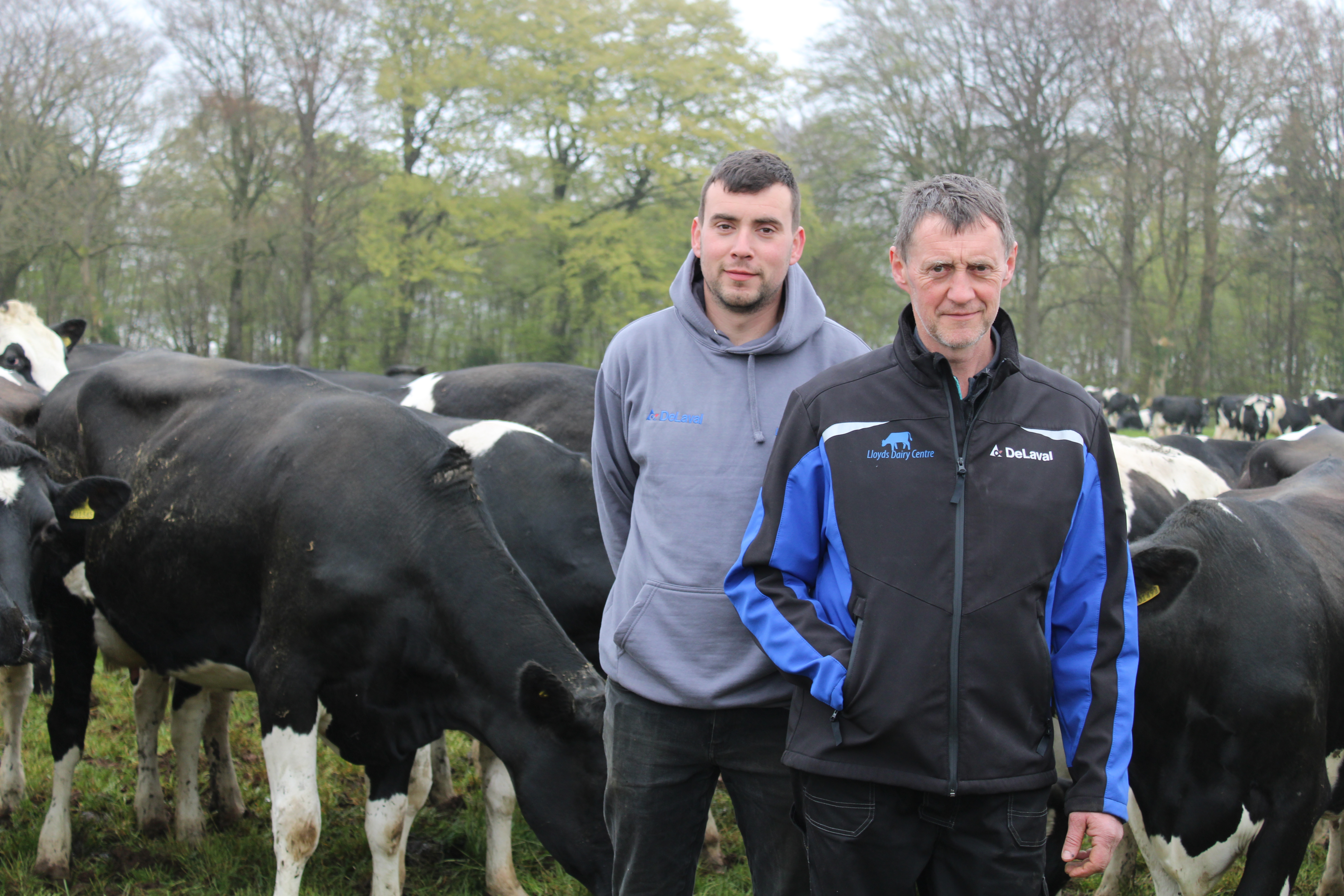
Tyllwyd Farm is situated just outside the town of Lampeter in 250 acres of lush Welsh grassland. Year-round calving from the 150 milkers enables 45 heifer replacements to be reared alongside 40 beef cattle that are sold as stores. The family also keeps 300 breeding ewes. The system has grown significantly since the couple took on the farm from Iwan’s parents.
“I suppose it all started when we took the opportunity to buy the neighbouring farm in 2015. After that we began growing the herd and went from 60 cows with 50 cubicles to 100 cows with 140 cubicles. Milk yield improved almost instantly,” he says.
With more grazing land the herd continued to increase, reaching a natural ceiling point in 2020. At this point, Iwan and Sian were milking almost triple the number of cows through the same 6/12 herringbone parlour and it was taking its toll on them and the cows.
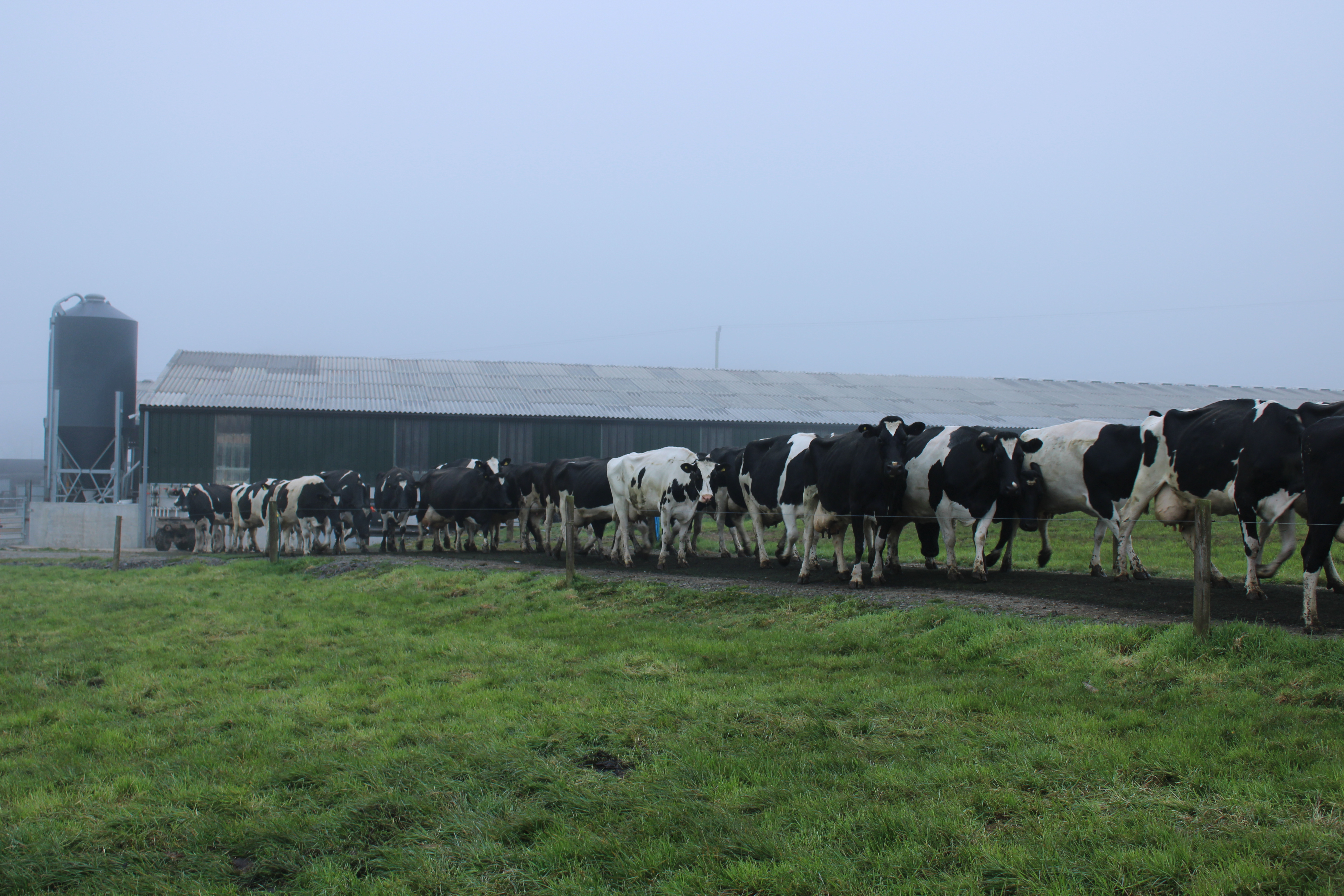
“We spoke to a couple of manufacturers and explained that we wanted to keep hands on milking but needed to streamline the process. Lloyds Dairy, a DeLaval dealer, was both local and very good at helping us through the process. Owen and the team were at the farm throughout and DeLaval was also engaged in the process, which helped put us at ease,” he says.
Being hands on was important for the family, as was the desire to see the cows graze.
“We wanted a one-person parlour and we couldn’t go any bigger than 16 stalls to do this well. We like to spend time with the cows and it helps us to pick up any issues. It is also pleasing to see the cows go out to graze. If they are anything like us, they too will be tired of winter and no doubt appreciate feeling the sun on their backs,” he says.
The DeLaval ML3100 MidiLine parlour is a swing over parlour, with arms enabling attachment on both sides quickly and easily. With 32 cows in the parlour, Iwan or Steffan are able to milk the whole herd in less than two hours. The cows stand at 50° herringbone configuration milking through the rear legs allowing for easy attachment and good vison of the udders during attachment.
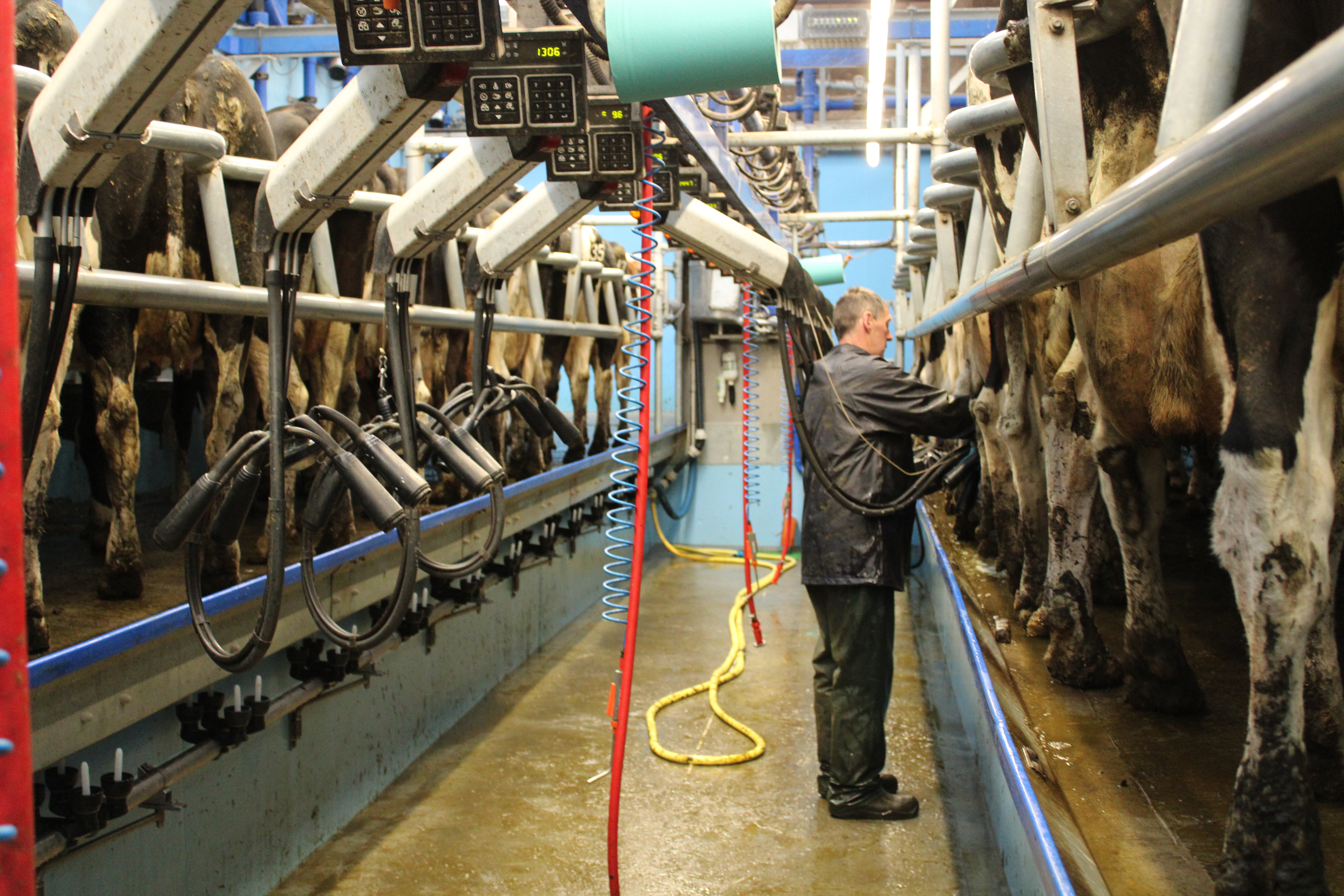
“We thought we wanted a simple parlour that we could push cows through but Owen from Lloyds advised us to go with auto ID and ACRs, along with feeding to yield with the DelPro software system,” he says.
The DelPro system, and feeding to yield, has been an eye opener for the family who prior to its installation saw the herd as equals.
“We thought all the cows were producing, but some were passengers. Now, with feed to yield, the cows don’t get fed unless they produce,” he adds.
The parlour is light, quiet and easy for the cows to access and leave. It has been designed with sorting gates and an automatic footbath that the cows pass through when exiting. It is also fitted with DeLaval Evanza clusters which has made attachment quicker and easier.
“It’s a pleasure to milk again, we genuinely enjoy it. We swapped the stainless Evanza clusters for the lighter plastic models which has made a big difference. With DeLaval’s maintenance programme we no longer have to worry about ordering chemicals or liners, it is all ordered automatically,” he says.
The reduced waiting time has provided significant health benefits for the herd. Foot health and mastitis cases have both improved, and milk yield is also on the rise.
“We used to have issues with cows feet, conception rates and mastitis. The cows were on their feet too long and some of them were up for 6 hours, which is not good for any part of their health. We had higher foot trimming and vet costs, and it was upsetting to see how uncomfortable the cows were,” he says.
Now the cows are tagged and managed by the DelPro system it is easier for the family to separate cows for monthly PD tests and any health issues.
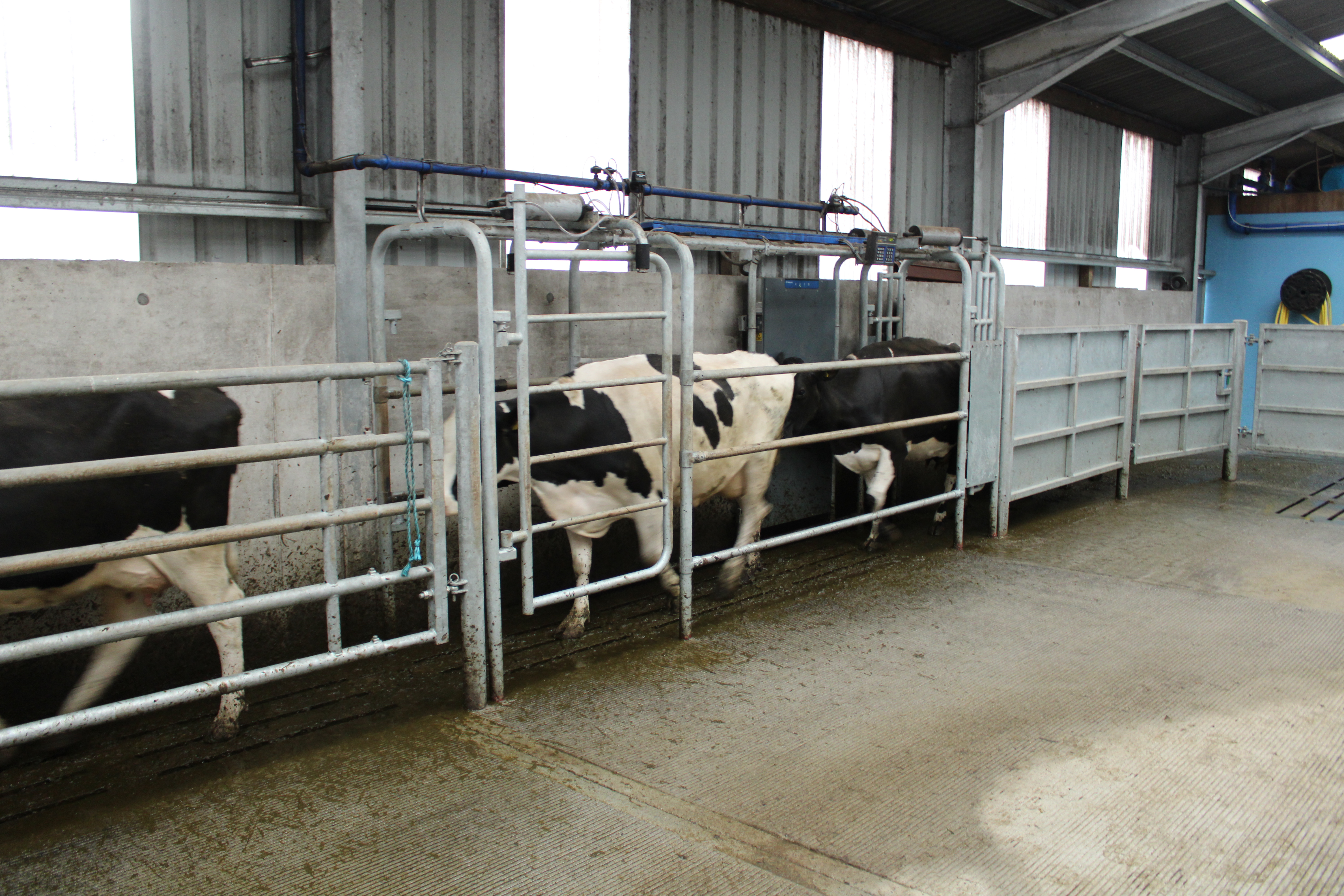
“Having automation in this way is helpful. We are still connected to the herd and see every cow twice a day, but routine monitoring is better handled using the technology. It used to be us waving at each other as the cows ran out the parlour to signal that one needed attention, so we have definitely taken some big steps forward,” he says.
The parlour is remarkably cheap to run, thanks to efficient variable speed vacuum and milk pumps. When built, it was set up with its own electricity meter and Iwan suggests that, on average, it costs £30 a day to milk. The new robotic scraper uses around 4 units of electricity, costing 70 pence a day to run.
“We wanted to manage our costs carefully. Buying the scraper was an investment but it is saving us about £40 a week in fuel and countless hours over the year,” he adds.
Now costs are under control, the aim is to increase milk production through breeding and improving milk from forage.
“Silage is at 14-16% protein and we are at about 7000 litres per cow, but we are breeding out the Friesian and using sexed semen to improve genetics. We don’t want them too large, but DelPro has shown us that the better-bred cows in the herd are producing nearly 9000 litres so we think we can get the herd average to 8500 within the next couple of years,” he says.
The change of parlour has given the family the time and data to make more well-informed decisions that can improve herd health and productivity whilst also enabling them to spend more time away from milking duties.
“Steffan and his wife Sara have three boys, and we wanted time for him to be a father and for us to be grandparents whilst building a business that will sustain us all in the future. Buying the land and installing the parlour has provided this and, if milk prices increase, we can see a good future in dairying,” concludes Iwan.
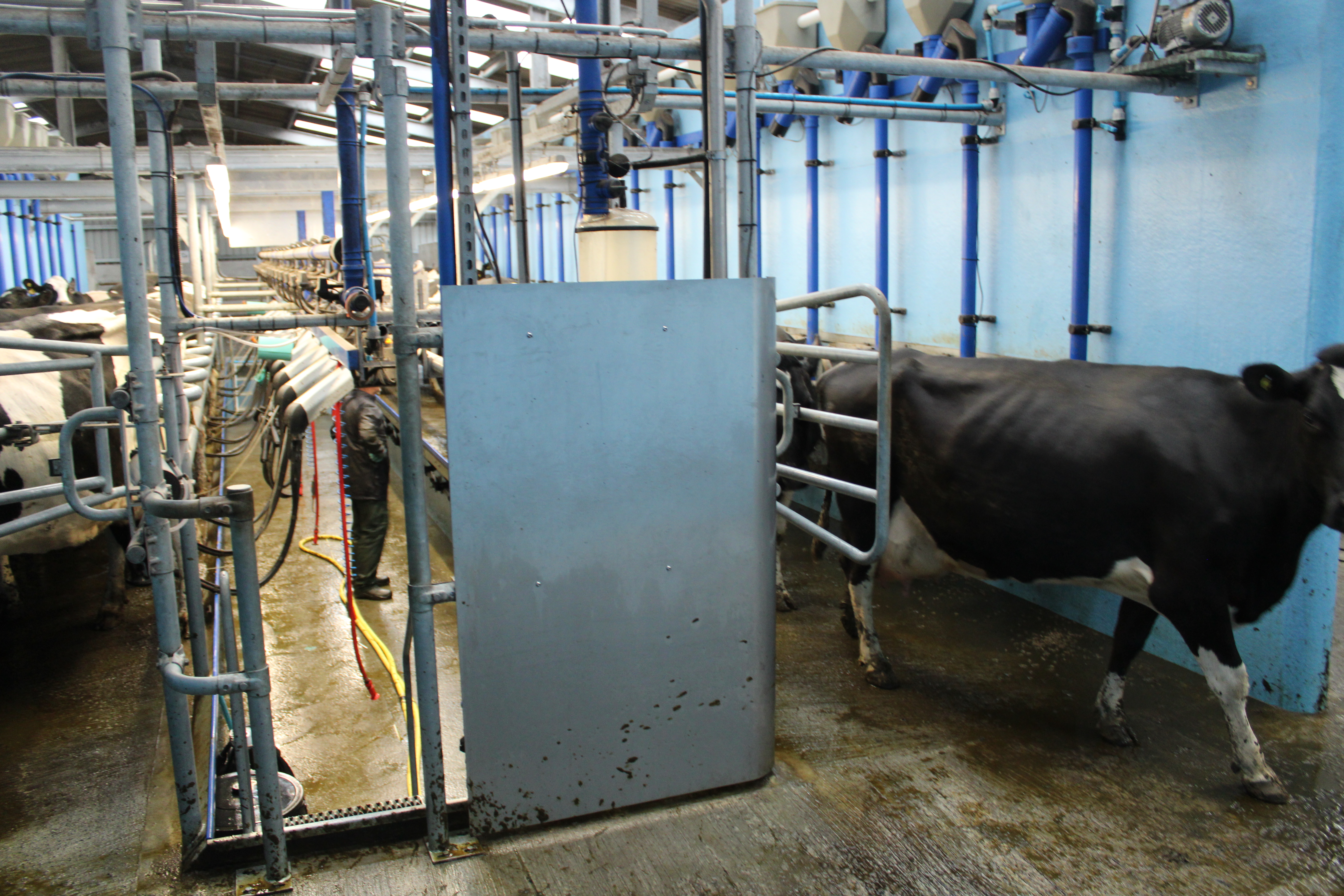
For more information on DeLaval milking parlours, click here.